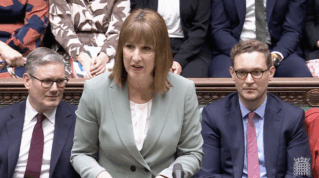Hopes for increased FE and skills spending have been dashed, as analysts warn of cuts to unprotected budgets following this week’s autumn statement.
Chancellor Jeremy Hunt’s decision to prioritise spending on tax cuts – rather than increasing government department budgets – could lead to real terms cuts of around 3.4 per cent in the coming years.
That estimate, from the Institute for Fiscal Studies (IFS), would affect non-protected government spending, such as further education and skills budgets within the Department for Education. Historically, spending on schools, the armed forces, and the NHS have been protected from cuts.

Bee Boileau, a research economist at the IFS, said that while high inflation has increased tax revenues, it also means fixed departmental budgets are worth less in real terms.
“The government could have used the tax proceeds from higher inflation to compensate departments. Instead, they announced £20 billion of tax cuts.”
Boileau said current plans “imply big cuts to the level of public investment” beyond 2025 and that increasing budgets at next year’s spending review would jeopardise the affordability of tax cuts announced this week.
“The outlook for unprotected departments looks pretty tight. We expect those to fall by 1.8 per cent annually in real terms. Those are budgets for local government, further education, courts and prisons for example.”
However, when accounting for increased funding for the NHS and top-ups to devolved nations, “it looks like cuts for unprotected English departments are of the scale of 3.4 per cent a year in real terms,” Boileau added.
High inflation is already eating away at the sector’s spending power, most notably impacting on staff pay, as well as creating recruitment and retention challenges now acknowledged by Ofsted, the FE Commissioner and even DfE ministers.
The pay gap between school and FE teachers is currently £9,000.
Earlier this year, the Association of Colleges was only able to make a pay award recommendation of 6.5 per cent following an injection of £185 million this year and £285 million next year added to 16 to 19 student funding.
DfE’s further education budget of £6.4 billion, plus £1.2 billion for capital, was increased at the last spending review in 2021.
However, the IFS has previously reported that funding increases in FE only partially reverse real terms year-on-year cuts since 2010, and the AoC said inflation and the “changing economic circumstances mean some of the benefits have not been realised”.
Following the autumn statement, AoC chief executive David Hughes said the government’s spending plans “look worrying for colleges”.
Real-terms cuts to budgets “will mean pressure on DfE to cut funding in further education, a sector which has lived through a decade of funding neglect, and one which needs significantly more funding to tackle the pressing issues of teacher recruitment and retention, predicted student growth and qualification reforms,” he said.

















Your thoughts